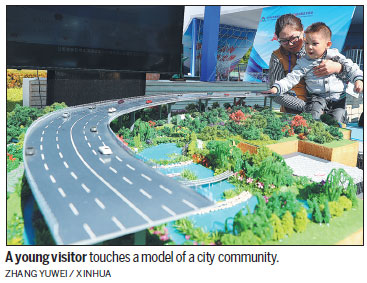Platform aims to boost sharing of resources throughout region
A new online service platform designed to help Beijing share its resources and expertise with surrounding areas was launched earlier this month at the 2018 National Mass Innovation and Entrepreneurship Week.
The platform aims to identify scientific and technological resources, promote integrated innovation and support balanced regional development in Hebei province and Tianjin, which are currently short of talent, equipment and other essential elements.
It will provide information sharing and consultancy services to governments, companies and researchers across the three regions, with an eye on strengthening technological innovation within the metropolitan cluster.
Shao Jinwen, vice-president of the Beijing Academy of Science and Technology that helped set up the platform, said that knowledge exchange is the foundation of collaborative innovation.
To achieve this, research institutes should enhance cooperation both within the Beijing-Tianjin-Hebei region and with international institutes, he said, adding that more think tanks are needed and science should be popularized among the public.
The academy has now built scientific research institutes in Tianjin, as well as Qinhuangdao and Handan of Hebei, to serve the national strategy of promoting coordinated development of the Beijing-Tianjin-Hebei region. Their main focus is researching urban safety and management, environmental and ecological protection, biological medicine and health, among other areas.
Li Jun, chief engineer at the Chinese Academy of Sciences' Computer Network Information Center, said the demand for technological resources is strong and exchanges have become more frequent in the digital era.
He identified commercialization, human resources and intellectual property protection as three key areas that the academy would address with another online platform in the future.
This platform will be open to companies and individuals, with a focus on information technology, equipment manufacturing, energy saving and environmental protection in the Beijing-Tianjin-Hebei region, Li said.
It will begin testing by the end of this year and is scheduled to launch in 2020.
Yang Kaizhong, vice-president of the Capital University of Economics and Business, said the key to building an integrated innovation center is attracting global talent, which is why employees' quality of life is so important.
"The natural environment, traffic, public services, education, medical services, all these should be allocated equally," he said.
"We can also develop tourism to boost publicity and the construction of consumption facilities. It's not enough to focus only on technology."

(China Daily 10/18/2018 page18)














